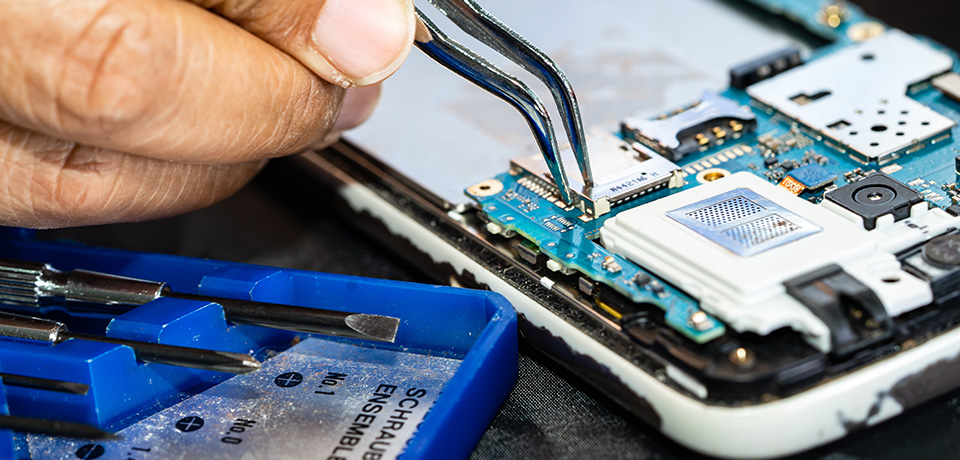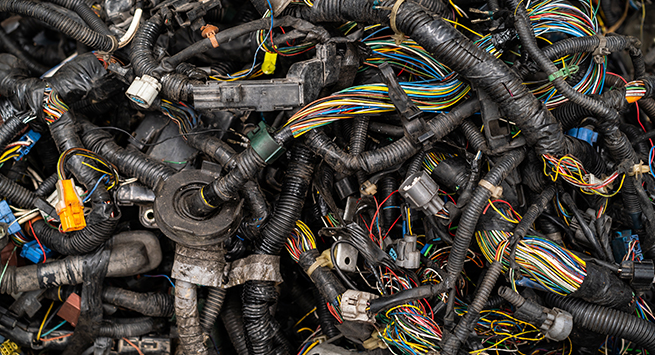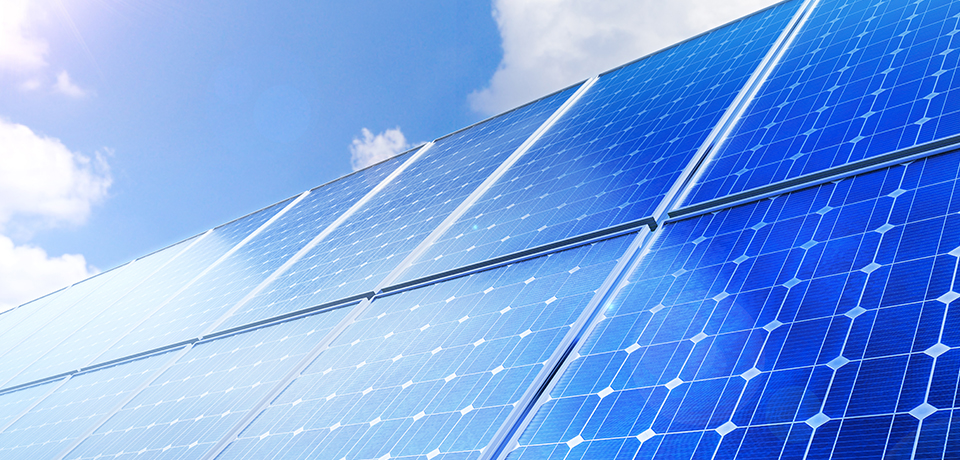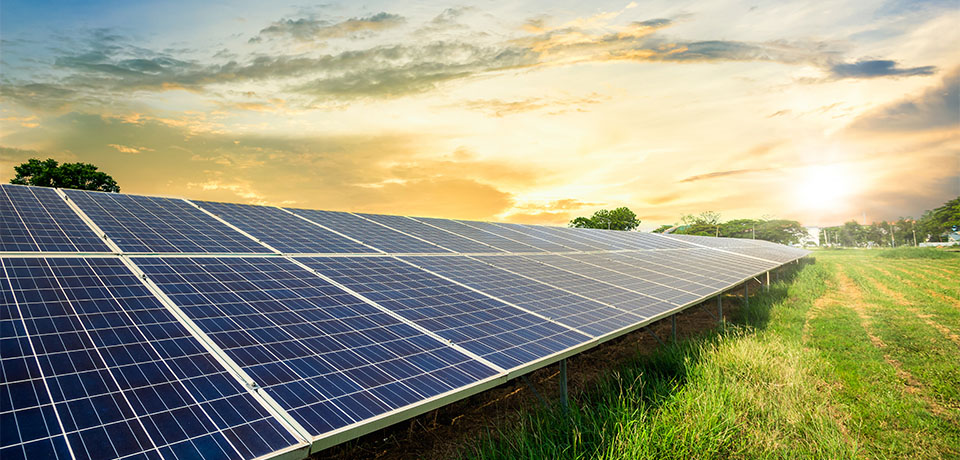Electronic Waste and Safe Recycling
- Home Page
- Blog
- Carbon Footprint
- Electronic Waste and Safe Recycling

Thanks to the rapid developments and diversity in technological products, we have the opportunity to meet new products every day. Even the technological products that have been produced recently became the tools that people need today. While developing new electronic products make our lives easier; it also leads to and brings along the unnecessary consumption.
Environmental pollution arising from the rapid and unconscious consumption caused by electronic products is one of the biggest examples of this waste. The harm to the environment of the electronic wastes that have expired can only be prevented when they are recycled. Well then, can these electronic wastes be recycled safely?
What is Electronic Waste?
Electronic waste includes all the electronic devices that we use in our daily life which have lost their functionality or have completed their life cycle. Sometimes, electronic devices that has not yet reached the end of their lifetime can also turn into electronic waste. We can list some of the devices and equipment defined as e-waste as follows:
- Televisions and monitors,
- IT and telecommunication equipment,
- Fixed and mobile phones,
- Small household appliances,
- Fax and copiers,
- Toys, entertainment and sports equipment,
- Cables,
- Lighting equipment,
- Monitoring and control instruments,
- Vending machines,
- Medical devices.
Older electronic devices often contain plastic, metal and glass materials. Depending on the area of use, substances that are harmful to human health are also contained in electronic devices. These wastes, which harm living things and nature when dumped into the trash instead of recycling, can only be destroyed when disposed of by experts without causing pollution.
The valuable materials contained in e-wastes, which have lost their functionality, are undesirable or have completed their useful lifetime, can also be brought into the economy by means of recycling.
How are the Electronic Wastes Recycled?
Just like other recycling processes, the recycling of electronic waste is done by collecting and taking them to the recycling center. Wastes taken to the center are classified according to their types and separated into categories. The non-recyclable parts of the wastes separated into categories are destroyed. Different procedures are also applied to convert the materials such as plastic and metal contained in the electronic wastes.
After the recycling stages of electronic wastes are completed, the materials obtained become usable for re-production. Reuse of recycled materials in production saves natural resources which are already limited.
As attempting to dispose electronic wastes in an inappropriate and unconscious manner can cause great harm to the environment; therefore, the conduct of disposal and recycling processes must be carried out by authorized electronic waste companies.
Why is Recycling of Electronic Waste Important?
Recycling of electronic waste is of importance in respect of preventing damage to the environment and ensuring that the valuable materials contained in the wastes are reused. Some electronic wastes contain substances harmful to the environment and living things such as cobalt, barium, mercury. Environmental damage due to electronic wastes increases if it is disposed improperly.
Thanks to the electronic waste recycling practices, energy is saved and natural resources are protected. Valuable materials are recovered from electronic goods that have completed their useful life and are used in the production of new products.
Investments made in the field of electronic recycling provide a large area of employment. The labor force required for the collection, separation and recycling of wastes creates new business opportunities. Materials obtained from electronic waste recycling, on the other hand, can also create an extra market and thus use of disposal sites unnecessarily formed can be prevented by recycling.
In order not to harm the nature and the living things, we need to place importance on the recycling of electronic wastes. Electronic waste, known as WEEE or waste electrical and electronic equipment, are of value.

What Can We Do to Reduce Electronic wastes?
As with the other wastes, taking care may be the first step to reduce electronic waste. Especially for the recycling of mobile phones and computer wastes that we use every day, we can ensure reuse of precious metals. By delivering the electronic wastes, that have completed their useful life or that cannot fulfill their function, to the companies that provide support for the collection of waste electronic goods, we can contribute to recycling.
Computer wastes contain chips, cables, glass, aluminum, steel, copper and plastic parts. Computers bearing many valuable materials are important for the reuse of precious metals in terms of recycling. The campaigns of the technology companies, which provide discounts when old electronic products are returned, can be followed. Thus, discounts can be provided when purchasing new products and we can prevent generation of electronic wastes
Batteries, according to their type may contain metals such as iron, zinc, manganese, nickel, cadmium, lithium, cobalt etc., as well as various chemical compounds, plastic, cardboard and paper-based materials. The collected waste batteries are left at the waste battery collection points established by the TAP Association (Portable Battery Manufacturers and Importers Association). If the amount of waste batteries collected is large, it is sufficient to fill out the "I Have Collected Waste Battery" form on the home page of the TAP Association's website "www.tap.org.tr". Following the completion of the form, the waste batteries are collected by TAP, by the municipality working with TAP and contracted companies.
Electronic Wastes in Türkiye
The increasing amount of electronic waste generated in Türkiye is an issue that needs to be taken seriously. Pursuant to the electronic waste policies implemented in many developed countries, electronic wastes are compulsorily collected separately. Parsing of electronic wastes and disposal of non-recyclable materials by experts can reduce the damage to the environment.
Electronic wastes generated in our businesses are stored in temporary waste storage areas (landfills) and collected by competent companies for recycling.
As the waste collection system, which is taking shape gradually in our country, is not widespread in many places, the wastes are dumped without being subject to parsing. In some provinces, waste parsing process is carried out in the waste collection centers utilized. Refuse (garbage) that serve to purpose with sale by tender, is parsed (separated) and evaluated by companies.
In Conclusion
Recycling of waste is of importance in terms of contributing to nature and to the economy of the country. Encouraging the use of natural resources can be supported by sustainable consumption and recycling in order to reduce the damage to the environment. By limiting the purchase of electronic goods not needed, we can prevent environmental pollution and unnecessary use of natural resources in production.
The use of energy and natural resources are indispensable components for every production activity. In this context, careful and conscious consumption makes the world more livable for the future generations. Training activities to be carried out on recycling, starting with the younger generations, can contribute to the raising of conscious generations.
 Insolation Time and Solar Energy Efficiency
Insolation Time and Solar Energy Efficiency  What is Solar Energy? How is Electricity Generated From Solar Energy?
What is Solar Energy? How is Electricity Generated From Solar Energy?  Renewable Energy Sources - Advantages of Renewable Energy Generation and Use
Renewable Energy Sources - Advantages of Renewable Energy Generation and Use  Geothermal Energy Potential of Turkey and its Sustainability
Geothermal Energy Potential of Turkey and its Sustainability